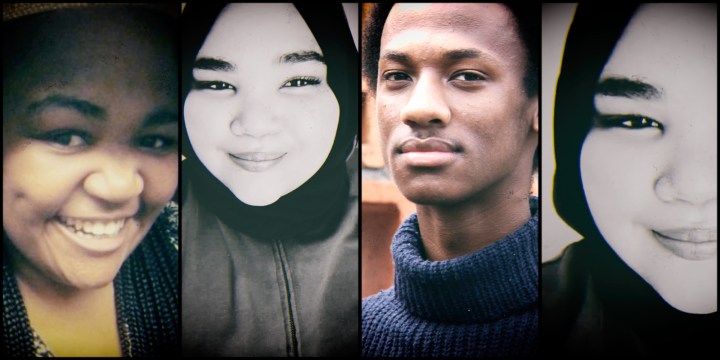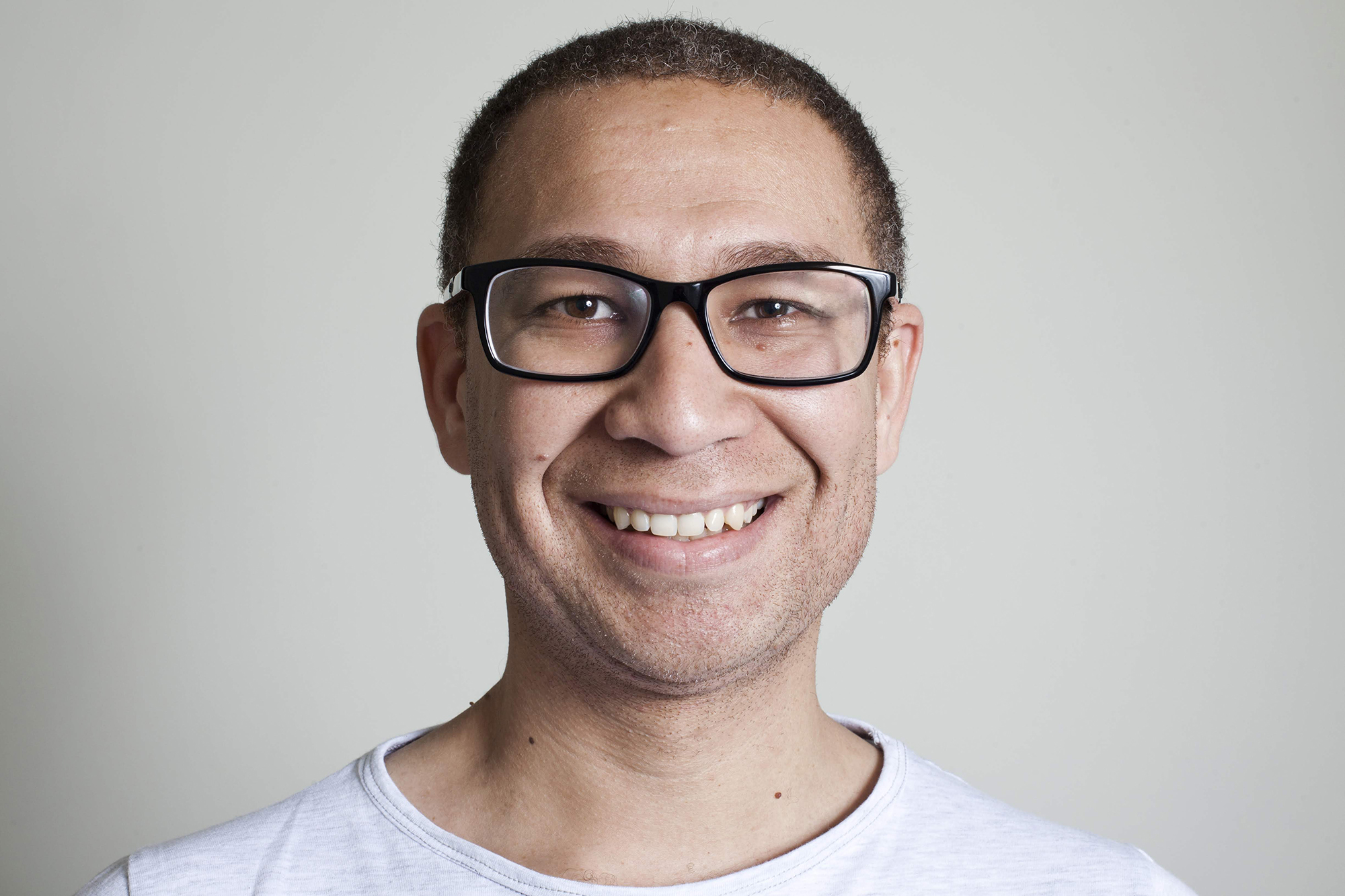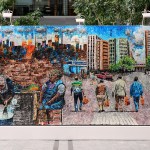OP-ED
These matric exams are unfair: Listen to us, the students

As matrics, we fear our futures are being jeopardised as we head into exams that we have not had adequate time to prepare for, and where we may be tested on content which we have not been taught. We are being expected to write two major exams (September trials and November finals) over a short period, with little time to prepare.
Matric exams loom as the Department of Basic Education (DBE) presses ahead with its strategy to salvage the 2020 year “by hook or by crook”.
Yet, as the exams approach, there are growing concerns from our peers that we are not ready. We have missed a significant portion of the school year and our schools aren’t able to maintain steady rhythms of teaching or learning, while also observing the non-pharmaceutical interventions that must be maintained as the country continues to fight the coronavirus pandemic.

Ashley Visagie. (Photo: supplied)
As more students feel beholden to return to school out of fear of being left behind or being deregistered, our return is being interpreted as tacit complicity with the DBE and provincial departments of education.
As students from communities marginalised by forces of racialised capitalism – where schools are grossly understaffed and under-resourced and where facilities are dilapidated – we are feeling anxious. We know that under “normal” circumstances, making it is difficult enough.
For those of us in Grade 12, many of our peers who started with us in Grade 8 have already been pushed out through a range of alienating forces inside and outside of school that serve to reproduce the social dynamics and roles that exist in the spaces we live in.
We are acutely aware that many of us who have made it to Grade 12 will not necessarily manage to achieve the pass required for acceptance to a local university. This is not because our peers have not worked, or lack ability, but because the conditions and contexts in which we are being schooled are not conducive for optimal teaching and learning. We have our sights set on further studies, but we watch as the system is crushing our hopes and dreams.
We have aspirations too. For many of us whose schooling years have been marked by the deaths of our peers, family and community members, we aspire to “become something in life”. But the odds are stacked heavily against us.
We must face high-stakes exams without having been taught during this extended lockdown.
We fear our futures are being jeopardised as we face exams we have not had adequate time to prepare for, and where we may be tested on content which we have not been taught by qualified teachers. We are being expected to write two major exams (September trials and November finals) over a short period, with little time to prepare.
Our parents – whose work fuels this economy, whose hands grease the machines in our local factories, who are ready to greet you at the till, and who are underpaid and undervalued for their contribution in society – long for more for us. We do too, but the system conspires against us, as it does against our parents.
When we went into lockdown, we saw stories in the news about students who have access to Zoom classrooms and remote teaching and learning; students who have not lost as much work as we have, yet we are supposed to write the same exam having missed months of school? How is this fair to us compared to those who have had access to schooling during the lockdown?
Some of us are stressed because we know this is not a good time to write exams, but we are trying to boost our self-confidence and motivate ourselves because we fear our parents may not have the money to pay for another year of school. It is painful to watch our parents stressing about not having money to pay for our schooling.
Our teachers have done their best to try to help us catch up with the curriculum, but schooling is about time and pacing. Our exam schedule has not been changed or trimmed because of Covid-19. In a normal year, only 53% of schools manage to complete the entire curriculum. We have doubts about whether our schools are among those that do. We don’t blame our teachers… they are doing what they can under the circumstances.
We know our teachers mean well when they tell us to adopt a positive mindset and not to make excuses or feel sorry for ourselves. But standing up for ourselves and questioning whether we are being given a fair chance is not the same as wallowing in self-pity.
We know our schools are poorly positioned because of the quintile funding model. We know the charging of fees does not help schools located in communities where there is high unemployment, and at a time when our parents only have piecemeal work. We also know that many of our peers did not have Wifi access and study materials at home during lockdown. We ask, who, if not us, will regret the situation society has put us in?
Our stories are our power and what we write here reflects only some of the complexities which we, from marginalised communities, must take into account. Our going back to school is not a reflection of our complicity or consent to a system which is militarised against us. Our presence at school is an act of self-defence in a situation where the department of education is victimising critical teachers, threatening to dissolve opposing school governing bodies (SGBs), and where there is a high price to pay for speaking up.
In 1985, South African students found themselves in a similar situation as we do now. The motto, then, was, “liberation before education” and school boycotts were called for. Some students made great sacrifices while others continued to write exams, at times under armed guard. It was a high price to pay for students who did not write, and who felt the negative impacts of their decision.
Education does matter and is a necessity in the process of liberation. We who read history appreciate the tough decisions of those who went before us, but we do not want to repeat 1985 – and so we find ourselves between a rock and hard place.
We are not ready to write, but the department of education has already released the exam timetable.
We students from vulnerable schools have little solidarity with students in former Model C (predominantly white) schools, who have lost barely any time during lockdown because their schools and staff were equipped for remote teaching. We call on our fellow students in those schools for solidarity, but do they hear us?
What then is to be done? Will the DBE listen to what students have to say? Will they hear our concerns and take the necessary action to postpone or cancel the exams, or even repeat this year so that we stand a fair chance?
Or will they continue to plaster the media with stories about us, but without us, using our attendance at school as a false indication of our consent? How could we ever consent to our own domination? Will we be forced to watch our futures being stolen “by hook or by crook”? DM
This article was co-written by Grade 12 students who participate in RCL training programmes with Bottomup (www.bottomup.org.za) and Ashley Visagie, a PhD student in education who is a facilitator at Bottomup.
Jayden Matthews is a Grade 12 student at Fairmount Secondary School in Parkwood. He is an RCL student leader who marched to the district offices to call for more teachers to be employed, and for smaller class sizes. He has been part of an initiative calling on the education district to make his school a safer institution, which resulted in a secure fence being built at his school. Jayden hopes to study at UCT next year.
Taahirah Hoosain is a Grade 12 student at Lotus High School. She is an RCL student leader who takes time to beautify school spaces where the Department of Education has not provided support. She is also part of a group of students in her school who are trying to establish a library. Taahirah wants to study business management next year.
Sinolutho Silevu is a Grade 12 student at Aloe Secondary in Mitchell’s Plain. She is an RCL chairperson who cares about her school. Together with her colleagues, she collects school uniforms to assist students who are in need. Sinolutho hopes to study education at CPUT next year.
Ashley Visagie is a PhD student at the UCT School of Education, being supported by Canon Collins Education and Legal Assistance Trust. He is also a co-founder of Bottomup, an organisation which promotes critical literacy and social justice with high school students.



















